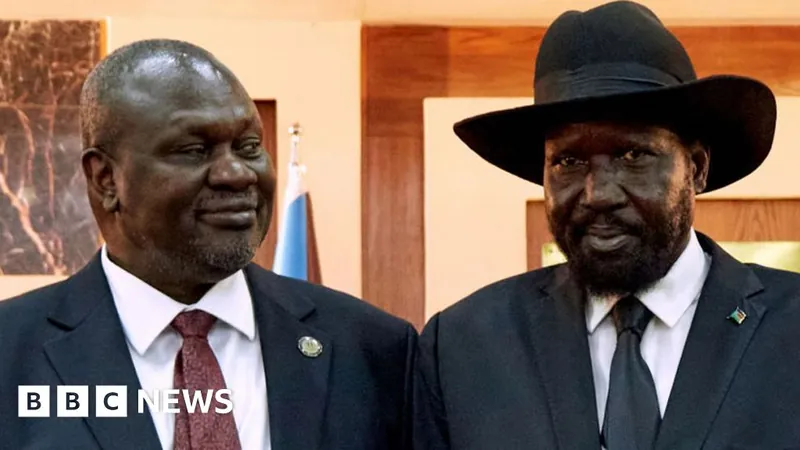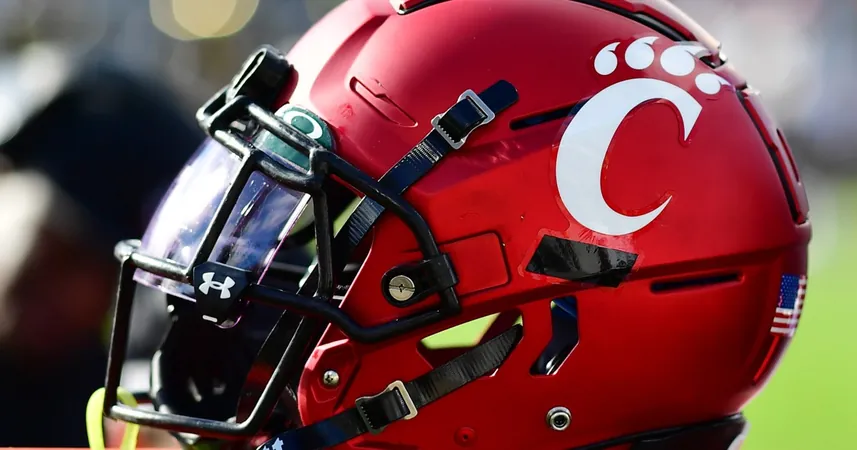
South Sudan's Tensions Spike: Are We on the Brink of Another Civil War?
2025-04-11
Author: Jia
Growing Fears of Renewed Conflict
Mounting tensions in South Sudan are raising alarms that the nation, the youngest in the world, may descend into yet another civil war. This concern erupted following the arrest of Vice-President Riek Machar on March 26, as his party declared this event effectively dismantles the fragile peace agreement reached in 2018.
A Turbulent History
South Sudan gained independence from Sudan in 2011, following decades of struggle led by the Sudan People's Liberation Movement (SPLM). However, just two years post-independence, a civil war ignited after President Salva Kiir dismissed Machar, accusing him of a coup attempt. The brutal conflict resulted in approximately 400,000 deaths and displaced over 2.5 million people—more than 20% of the population.
Tensions Erupt Again
Tensions flared earlier this month when clashes erupted between the White Army militia, allied with Machar, and government forces in Upper Nile state. The violence peaked when a UN helicopter was attacked during a troop evacuation, leading to multiple fatalities, including a senior army general. Machar's arrest soon followed, with allegations of inciting rebellion adding further uncertainty to an already fragile situation.
The Fragile Peace Deal
While Machar's role in the unity government was vital to the 2018 peace deal, many critical components remain unimplemented. Most glaring is the agreement to unify former rebel and government forces into a cohesive national army of 83,000 troops—a goal that remains unrealized. Additionally, efforts to establish a court to address past violence have stalled, mainly due to government officials' reluctance to create a system that could prosecute them.
Longstanding Rivalry: Machar vs. Kiir
The animosity between Kiir and Machar, both in their 70s, is deeply rooted, colored by ethnic divisions and competing political aspirations. Kiir, a Dinka, and Machar, a Nuer, have had a tumultuous relationship since Kiir dismissed Machar, which led to the civil war declaration. Delayed elections have further strained their rivalry, as Machar feels sidelined from his presidential ambitions.
Key Players in the Crisis
Machar, born in 1952, has had a complex military and political career, repeatedly switching allegiances during the civil struggle for South Sudan. Meanwhile, Kiir, born in 1951 and initially a humble cattle herder, rose through the ranks to lead the SPLM and has held the presidency for 14 years without the nation holding elections.
Dangerous Implications Ahead
UN mission chief Nicholas Haysom warns that South Sudan is perilously close to relapsing into full-scale civil war, which could devastate a nation still reeling from past conflicts. Analyst Daniel Akech suggests such a return could instigate regional proxy wars, with numerous armed groups preparing for potential conflict.
What’s Being Done?
To mitigate rising tensions, regional leaders, including Uganda's President Yoweri Museveni, have visited South Sudan, discussing the precarious situation with Kiir. Troops from Uganda were also deployed recently, under the guise of a long-standing cooperation agreement. Meanwhile, the African Union has sought dialogue with both leaders but has seen limited success.
As the world watches, Western nations, including the US and UK, are urging de-escalation. Yet, the path ahead remains unclear, with South Sudan's stability hanging by a thread.


 Brasil (PT)
Brasil (PT)
 Canada (EN)
Canada (EN)
 Chile (ES)
Chile (ES)
 Česko (CS)
Česko (CS)
 대한민국 (KO)
대한민국 (KO)
 España (ES)
España (ES)
 France (FR)
France (FR)
 Hong Kong (EN)
Hong Kong (EN)
 Italia (IT)
Italia (IT)
 日本 (JA)
日本 (JA)
 Magyarország (HU)
Magyarország (HU)
 Norge (NO)
Norge (NO)
 Polska (PL)
Polska (PL)
 Schweiz (DE)
Schweiz (DE)
 Singapore (EN)
Singapore (EN)
 Sverige (SV)
Sverige (SV)
 Suomi (FI)
Suomi (FI)
 Türkiye (TR)
Türkiye (TR)
 الإمارات العربية المتحدة (AR)
الإمارات العربية المتحدة (AR)